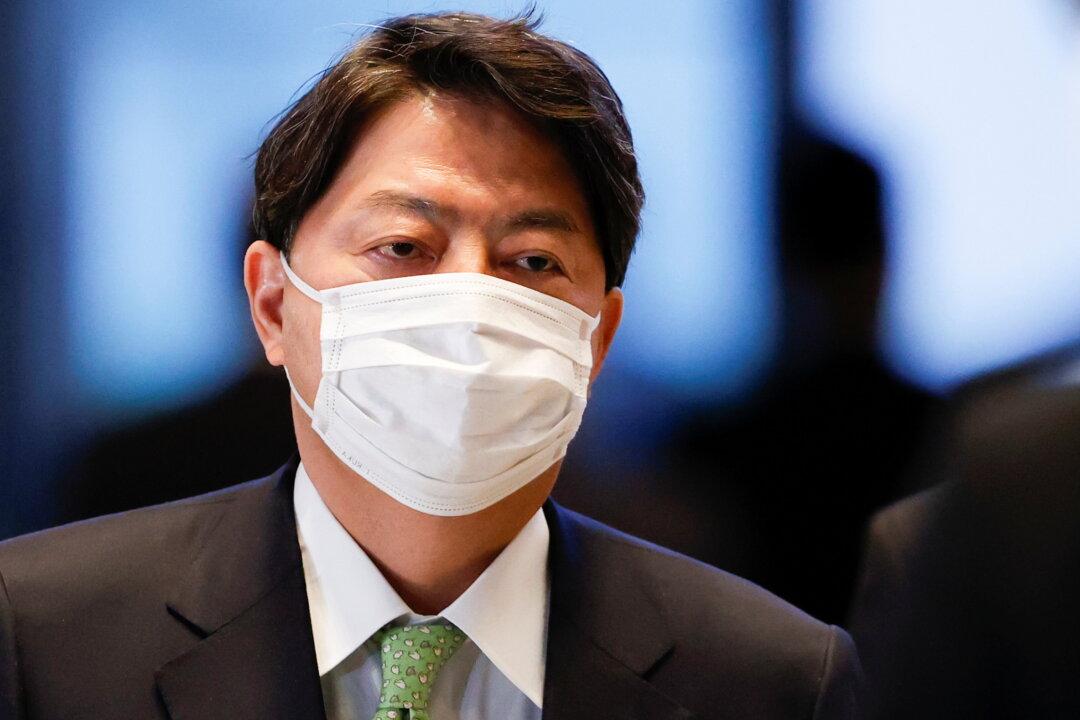Japan’s foreign minister said Sunday that he had lodged a protest with the Chinese Communist Party (CCP) regarding the detention of a Japanese employee in China last month, calling for his immediate release.
Foreign Minister Yoshimasa Hayashi expressed Japan’s “strict stance” on the employee’s detention during a bilateral meeting with his Chinese counterpart, Qin Gang, in Beijing.
Hayashi also urged the CCP to provide transparency in the judicial process related to the employee’s detention, and ensure a safe and fair business environment for Japanese firms in China.
Qin Gang said that Beijing would handle the case “in accordance with the law,” according to the Chinese Foreign Ministry.
Issues Related to South and East China Seas
The bilateral meeting lasted about three hours, according to Japan’s Foreign Ministry. Hayashi became the first Japanese foreign minister to visit China in three years.During the meeting, Hayashi raised concerns over “China’s intensification of military activities around Japan”—particularly near the Japanese-controlled Senkaku Islands that China also claims—and the CCP’s cooperation with Russia.
“We are facing numerous challenges and are at a critical stage. Both Japan and China are major powers that bear important responsibilities for the peace and prosperity of the region and the international community,” he said.
Hayashi said Japan was also concerned about the situation in the disputed South China Sea, where Beijing is pushing its claims on neighboring countries despite a Hague Tribunal ruling against its claims in 2016, and emphasized the need to maintain peace and stability in the Taiwan Strait.
The CCP claims the liberal democratic self-ruled island of Taiwan as part of its territory and has threatened to bring the island under its control by force if necessary.
Qin Gang said that Beijing is willing to work with Japan to “properly manage differences, remove obstacles and ease burdens for bilateral relations, and build a China-Japan relationship that meets the requirements of the new era.”
Export Controls on Semiconductor Equipment
Japan announced that it will also impose export restrictions on 23 semiconductor manufacturing equipment. The move will be a major win for the United States, which in October imposed sweeping restrictions on access to chipmaking technology to slow China’s technological and military advances.Following the move, Qin Gang told Hayashi that “Japan should not help a villain do evil” and warned that “the blockade will only further stimulate China’s determination for independence and self-development.”
Some 42 countries, including the United States and Taiwan, will continue receiving the equipment under a simplified export measure. But China was not among them and will be subject to stricter controls.
The export control measures will take effect in July and cover equipment for cleaning, checkups, and lithography—a key technology in manufacturing advanced semiconductors—according to Japan’s Ministry of Economy, Trade and Industry.





